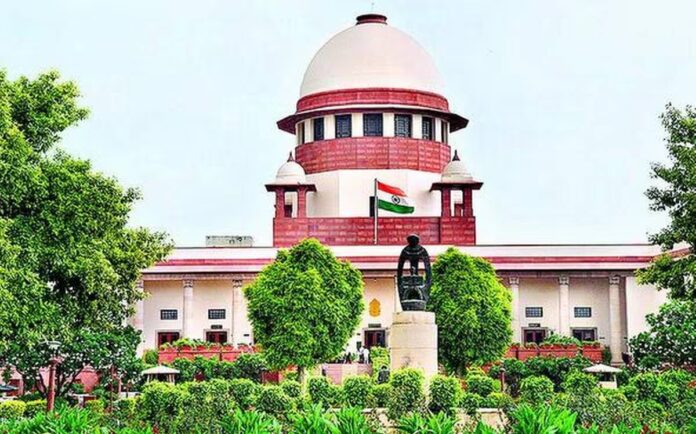New Delhi, Apr 5: In a significant turn of events, the Supreme Court has halted the decision made by the Allahabad High Court on March 22, which annulled the UP Board of Madrasa Education Act 2004. This ruling has significant ramifications for the education of approximately 17 lakh students enrolled in madrasas affiliated with the board, as well as the job security of 10,000 teachers. The Supreme Court has scheduled the final disposal of the matter for the second week of July 2024 and has issued notices to the Uttar Pradesh and central governments, along with the UP Madrasa Board.
Meanwhile, despite the pending Supreme Court case, the Uttar Pradesh government has derecognized all madrasas operating under the Madrasa Board, aligning with the Allahabad High Court’s judgment. The apex court, led by Chief Justice of India DY Chandrachud, observed that the High Court’s understanding of the Act’s provisions was flawed, emphasizing that the Act primarily serves a regulatory purpose and does not compromise secularism.
The Supreme Court’s decision comes following five Special Leave Petitions challenging the Allahabad High Court’s order. Notably, various petitioners, including Anjum Kadari and several associations representing madrasas and teachers, have argued against the High Court’s ruling, contending that the Act’s objective is regulatory in nature and does not endorse religious instruction.
Additional Solicitor General KM Nataraj, representing the Uttar Pradesh government, informed the Supreme Court that the state has accepted the High Court’s judgment, prompting questions from the Chief Justice regarding the state’s change in stance. The Union of India, through its Attorney General for India R Venkataramani, also expressed support for the High Court’s decision.
Senior advocates appearing for the petitioners highlighted the historical existence of the madrasa system and its sudden disruption, affecting a large number of students and teachers. They argued against the High Court’s findings regarding the teaching of modern subjects in madrasas and emphasized the importance of regulatory frameworks in maintaining educational standards.
Moreover, arguments were presented regarding the funding of madrasas, with advocates asserting that not all madrasas are wholly funded by the state government, and thus, Article 28 restrictions may not apply uniformly. Senior Advocate Dr. Maneka Guruswamy underscored the Act’s role in ensuring standards and a structured curriculum in madrasas, warning of potential consequences if the statute is repealed.
In essence, the Supreme Court’s intervention seeks to address the complexities surrounding the Madrasa Board Act and its implications on religious education, regulatory oversight, and educational standards in madrasas across Uttar Pradesh.




